As climate talks are underway in Paris this week, and in light of Bernie Sander’s – American democratic presidential candidate – recent claim that “climate change is directly related to the growth of terrorism,” it is worth examining the role climate change plays in the war in Syria.
The Syrian uprising-turned-civil war was the result of a myriad of complex interrelated social, political and economic factors. Among such factors were a widespread dissatisfaction with the repressive rule of the Assad family – who belong to the minority Alawite sect, the inability of the government to provide jobs and social services to the rapidly growing population, and a deep-seated longing for democratic reform.
However, a long overlooked aspect in triggering the unrest is, on the one hand, the role played by climate change in aggravating the economic situation for ordinary Syrians, and on the other hand – and perhaps more importantly – the failure of the Syrian government to adequately respond to the effects of the changing climatic conditions. This resulted in a humanitarian crisis that had developed and accumulated in the years and decades before 2011.
The most immediate climate-related event prior to the outbreak of the 2011 rebellion was the severe drought that hit Syria’s rural areas between 2006 and 2010. This exacerbated an already dire water crisis which led to agricultural failure and the death of livestock on a massive scale.
The northeastern regions of the country, which produced around two-thirds of Syria’s crop yields, were hit the hardest and the agricultural system there basically collapsed. One expert described it as being “the worst long-term drought and most severe set of crop failures since agricultural civilizations began in the Fertile Crescent many millennia ago.”
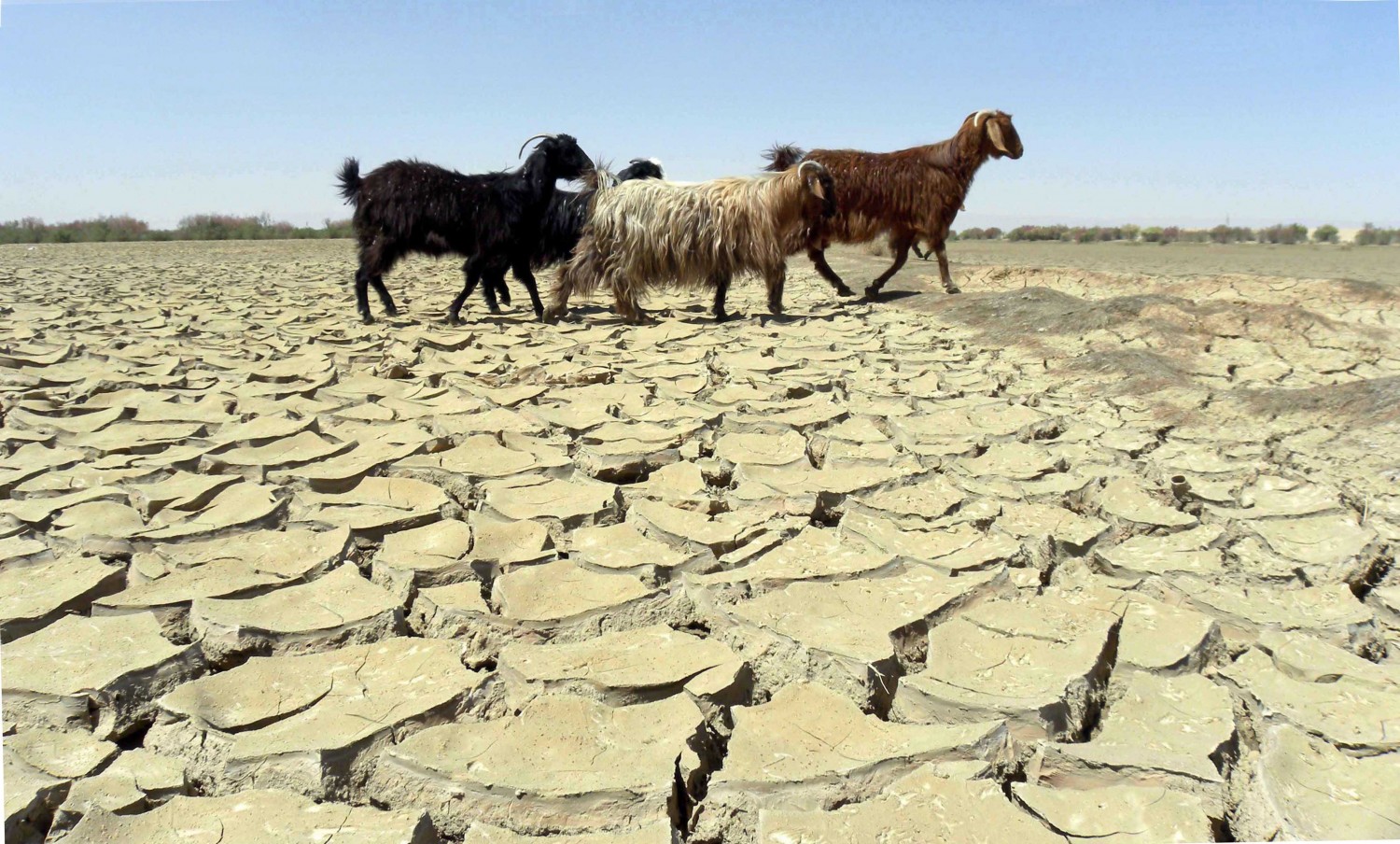
By 2010, the drought had driven two to three million people into extreme poverty, as reported by the United Nations Special Rapporteur on the Right to Food.
Furthermore, a 2011 study on the impact of climate change in Syria conducted by the International Food Policy Research Institute projected that if global human-induced greenhouse-gas emissions continue at the present rate, the yields of Syria’s rain-fed crops may “decline between 29 and 57 per cent from 2010 to 2050.”
One of the most significant consequences of the drought was that approximately 1.5 million people from farming areas in the countryside migrated to the peripheries of Syria’s major cities of Aleppo, Damascus, Dara’a, Deir ez-Zor, Hama and Homs. These urban hinterlands came to be marked by rising unemployment, deficient infrastructure, illegal settlements and overcrowding. Contributing to the worsening of an already bleak condition, such rising problems were all together heavily neglected by the Assad government.
Consequently, the drought-generated migration “exacerbated a number of the factors often cited as contributing to the unrest, which include unemployment, corruption, and rampant inequality,” as stated in a recent study.
Drought Turned to Catastrophe Due to Politics
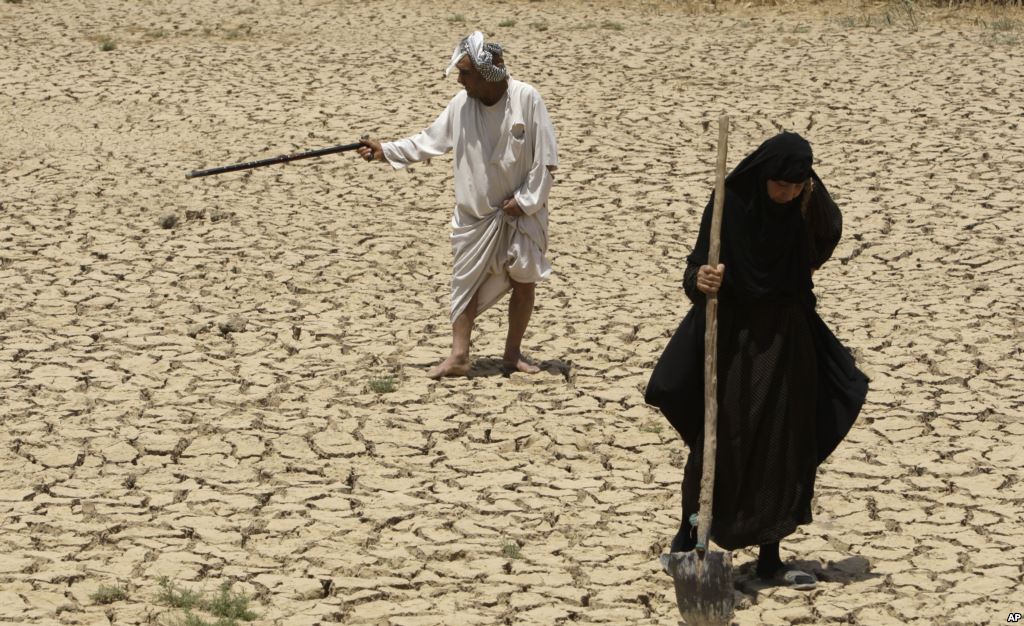
However, the devastating drought that impoverished large sections of the Syrian populace was not a result of climate change on its own. The water crisis that ensued, and that is still affecting millions of people, was also the result of deliberate decisions by the leadership of the Syrian state. In comparison to climate change per se, the regime’s failure to implement economic measures that would mitigate the effects of the drought had greater impact on driving the mass mobilization of people into the streets of Syrian towns and villages in 2011.
Already in 2008, the U.S. embassy in Damascus told the State Department in a confidential diplomatic cable – later published by Wikileaks – that if “seed and technical assistance” are not provided to small-holding farmers in northeastern Syria, the drought and resulting migration would risk acting “as a multiplier on social and economic pressures already at play and undermine stability in Syria.” The future effects of not adequately responding to the drought were thus well known several years before the uprising began.
Furthermore, for 50 years, Syria’s water and land resources had been severely mismanaged. But since water is considered a “strategic resource” by the Syrian government – a view it shares with many other governments in the Middle East – it is seen as a ‘sensitive’ issue and thus taboo to talk about publicly, even within government circles.
Therefore, when the Ba’ath party came to power in the 1960s and focused a large part of its national security strategy on ensuring food and water self-sufficiency – which took the form of massive agricultural development and irrigation projects – it did not seem to take into account the long-term effects this could have on the country’s water supply.
Constantly increasing agricultural production and expanding irrigated agriculture without regard to the natural limits of the country’s water supply thus ultimately led to the water resources diminishing and to the government’s incapacity to appropriately respond to the increasingly recurrent water crises, such as the drought of 2006-10. In fact, only in the past 30 years, Syria’s irrigated area has doubled from “651,000 hectares in 1985 to 1.35 million hectares in 2010,” and some 60 per cent of this area has been irrigated with irreplaceable groundwater. In addition, the irrigation techniques used are largely based on traditional methods, which amounts to very inefficient water usage.
Francesca De Châtel summarized the situation saying that: “Unrealistic agricultural targets, corruption, a failure to implement and enforce legislation, and the absence of a long-term strategy have thus devastated a region [i.e. northeastern Syria] that was considered a breadbasket for Syria and the region.”
So even though climate change was a core factor in triggering the drought, its consequences would have been possible to alleviate through the implementation of appropriate economic measures on the part of the Syrian government.
The long legacy of the Syrian regime focusing its economic efforts on agricultural development can furthermore be connected to former president Hafez al-Assad’s reliance on the rural poor as his primary base of ideological and popular support.
Being the first president with peasant roots, he crafted a propaganda discourse where he promised to lift the traditionally marginalized peasantry out of poverty while simultaneously being vehemently critical of “powerful economic interest groups that had hoarded the country’s wealth at the expense of those who tilled its land,” as Suzanne Saleeby put it. This rhetoric, together with the execution of development and land-redistribution projects, increased his popularity and thus secured the legitimacy of his and his son’s regime.
Syrian Economy and Accelerated Drought Effects
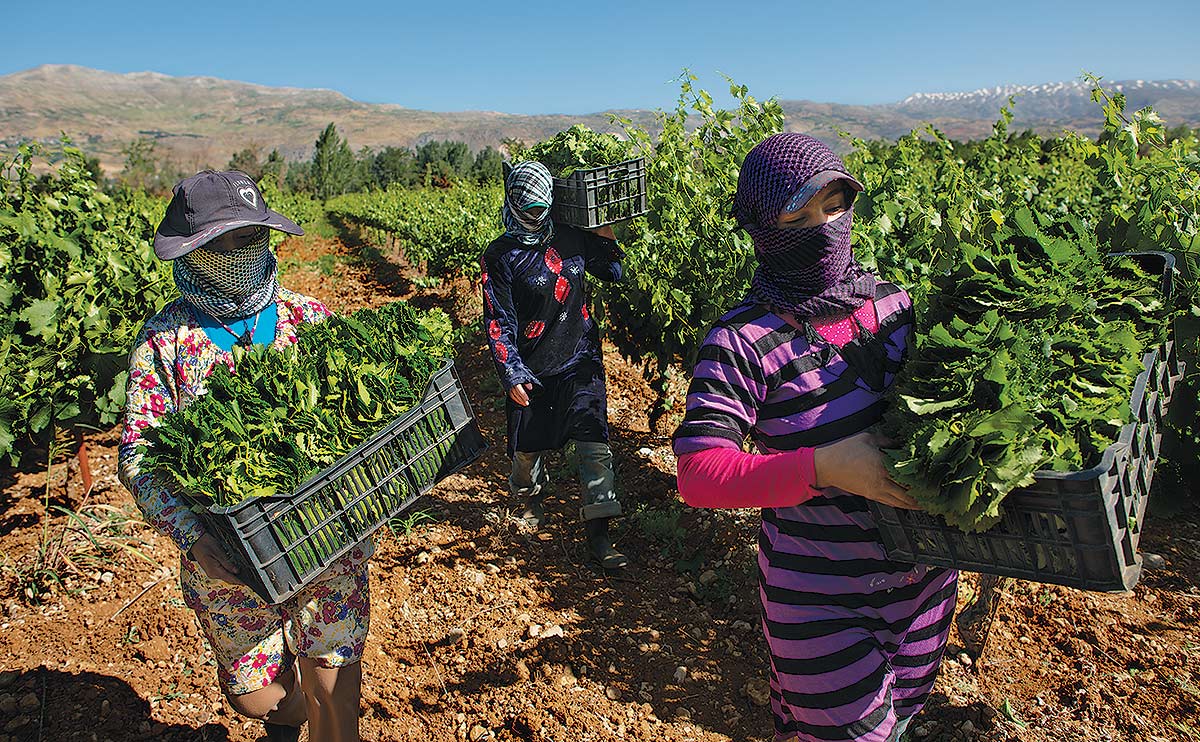
A further important factor worsening the effects of the 2006-10 drought was the liberalization of the economy beginning in the early 1990s and accelerating in subsequent years. Severe austerity measures were implemented which shrunk the public sector, slashed social benefits such as food subsidies, and froze wages. The private sector became the main engine for economic growth, which pleased the country’s bourgeoisie but alienated large sections of the working and peasant classes.
Under Bashar al-Assad, who assumed power after his father’s death in 2000, the liberalization scheme deepened and expanded to the agricultural sector.
Wealthy landowners were the primary beneficiaries of these policies who, as a result of new pro-capitalist laws, were allowed to terminate the employment contracts of farmers deemed unproductive from a profit-making point of view. Economic development largely shifted from the countryside to the urban areas where real estate, services, banking, industry and tourism became the main sectors of economic activity. The result was a significant reduction in agricultural employment and a consequent rise in the number of people without work. Therefore, the rural peasant classes – which had once been the backbone of the ruling Ba’ath party – were reduced to the margins of Syria’s economic and socio-political landscape under Bashar’s rule.
As the previous sequence suggests, even though the drought resulting from human-driven climate change is indeed important to factor in when analyzing the origins of the current Syrian crisis, it should be remembered that political decisions taken by the Syrian leadership was equally, or perhaps even more, significant when determining how the drought affected the socio-economic conditions of the Syrian people.
Focusing solely on climate change enables the Syrian government to point to circumstances that are out if its control and thus absolves it from responsibility. However, Syrian economist Samir Aita responded, saying that “the drought did not cause Syria’s civil war [… but] the failure of the government to respond to the drought played a huge role in fueling the uprising.”
Climate Change and the Civil War

Climate change is increasingly acknowledged as a factor having an impact on violent conflict generally. It is often discussed in terms of being a “threat multiplier” or “accelerant of instability”, meaning that it does not directly trigger conflicts but it can certainly exacerbate other drivers of unrest or threats to security.
The U.S. Department of Defense, an institution perhaps not very well-known for its seemingly progressive stance on climate change, claimed in its 2014 Climate Change Adaptation Road-Map that: “The impacts of climate change may cause instability in other countries by impairing access to food and water, damaging infrastructure, spreading disease, uprooting and displacing large numbers of people, compelling mass migration, interrupting commercial activity, or restricting electricity availability. These developments could undermine already-fragile governments that are unable to respond effectively or challenge currently-stable governments, as well as increasing competition and tension between countries vying for limited resources. These gaps in governance can create an avenue for extremist ideologies and conditions that foster terrorism.”
Other studies suggest more direct connections between climate change and political violence. For instance, one study that was conducted by the CNA Corporation Military Advisory Board observed that climate change can serve as a “catalyst for conflict”. It is nevertheless clear that climate change influences the dynamics of conflict in vulnerable regions.
Having established how climate change can contribute to socio-political instability, it should thus not be a far-fetched claim to make a link between climate change and the rise of the self-proclaimed Islamic State – or Da’esh – in Syria. The 2006-10 drought, compounded by the government’s failure to cope with it, created the conditions in which Da’esh was able to thrive.
Agricultural collapse, extreme poverty, massive livestock mortality, unemployment and forced migration – inter alia – severely aggravated the situation for ordinary Syrians. Without having much choice, this, in turn, drove many men into armed militias having popped up in the latter part of 2011 during the uprising’s initial militarization phase. Many of the more established rebel groups such as Ahrar al-Sham, the Nusra Front, the Islam Army, and of course Da’esh, could offer food, a sense of belonging and identity, in addition to a decent salary. Considering the alternatives, this made joining one of the militant groups look like a pretty good option.
Coming to glue the pieces together, it may pose as one interpretation to say that the effects of climate change are one contributing factor in the ideological radicalization of the conflict that we have witnessed in recent years.
Furthermore, after years of rampant crime, institutional absence and lack of security in areas ravaged by the war, it should not come as a surprise that people living in those areas would welcome any providers of stability, law and order, and basic social services.
Thus, the drought in parallel to the government’s inadequacy to confront it, together with the degrading of the agricultural sector in the context of the free market economic reforms discussed above – which amounted to hundreds of thousands of people being left unemployed and forced to leave their homes – created a desperate situation, which Syria’s militias, including Da’esh, could exploit to their benefit.
Although climate change did not lead to the rise of Da’esh, it certainly sowed the seeds for its growth and expansion in Syria.
What About The Rest of the Middle East?

In spite of the grave influence of climate change on the dire conditions of Syria, it is noteworthy that the effects of climate change are not exclusive to Syria.
Being the world’s largest wheat importer, Egypt experienced skyrocketing bread prices in reaction to China – which is the world’s main producer of wheat – and Russia being hit by droughts in 2010-11, which led to a reduction in global wheat supply. Given that bread constitutes “one-third of the caloric intake in Egypt,” and that Egyptians spend about 40 percent of their income on food, the price increases on bread resulting from changing weather patterns could be considered as one of the reasons for the mass mobilization of people during the initial stages of what came to be called the Arab spring.
The rising food prices were moreover also contributing to unrest in other countries in the region, such as Tunisia, Algeria and Yemen.
In Libya, global warming continues to threaten water availability and a recent report noted that “some of the wettest and most-populated areas of Libya along the Mediterranean coast will likely experience increases in drought days from the current 101 days to a whopping 224 days.” The issue of water scarcity holds true for Yemen as well where global warming is drastically affecting the availability of water.
Taking a step back to review the bigger picture, it isn’t hard to see how climate change is affecting and contributing to conflicts in the Middle East and elsewhere. If major transformations in the mind-set of world leaders to massively reduce global greenhouse gas emissions are not realized, it is likely that the effects of climate change will continue to fuel conflict in regions around the world.
But a change in mind-set will presumably not be enough. Free market capitalism has up to this point not been able to fix the climate crisis and Naomi Klein importantly points this out in her recent book This Changes Everything, saying: “we have not done the things that are necessary to lower emissions because those things fundamentally conflict with deregulated capitalism.”
What is ultimately required is a radical transformation in the current global economic system where short-sighted profit making cannot be allowed to be prioritized over the very ecological survival of the planet.
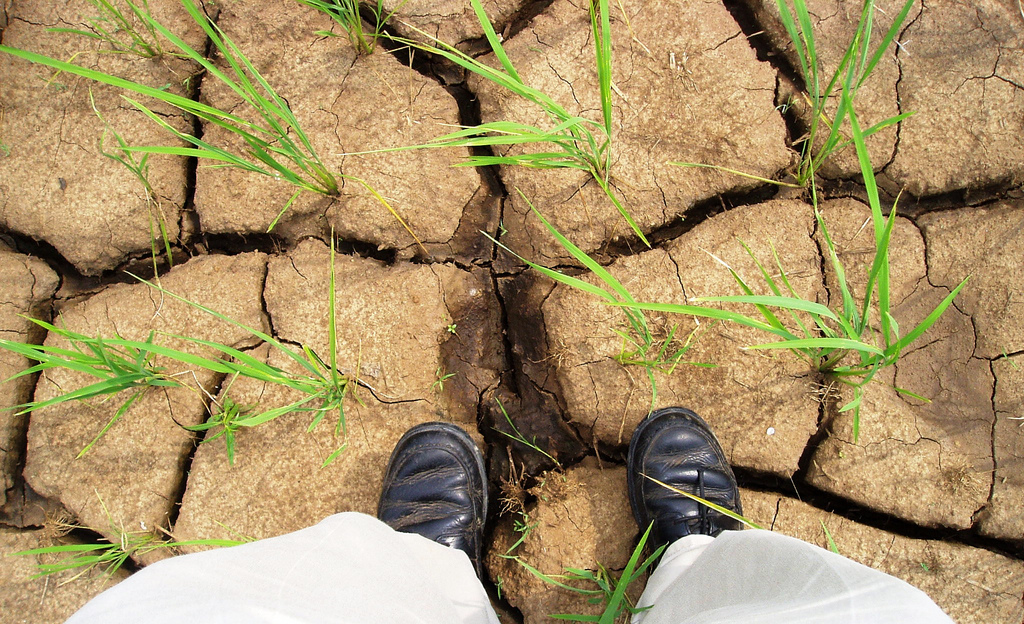




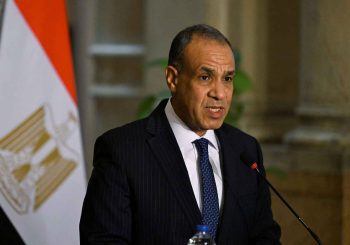

Comments (35)
[…] How Climate Change in the Middle East Fueled Armed Conflict and Bred Militant Groups – Furthermore, a 2011 study on the impact of climate change in Syria conducted by the International Food Policy Research Institute projected that if global human-induced greenhouse-gas emissions … on the country’s … […]
[…] How Climate Change in the Middle East Fueled Armed Conflict and Bred Militant Groups – Therefore, when the Ba’ath party came to power in the 1960s and focused a large … In addition, the irrigation techniques used are largely based on traditional methods, which amounts to very inefficient water usage. […]